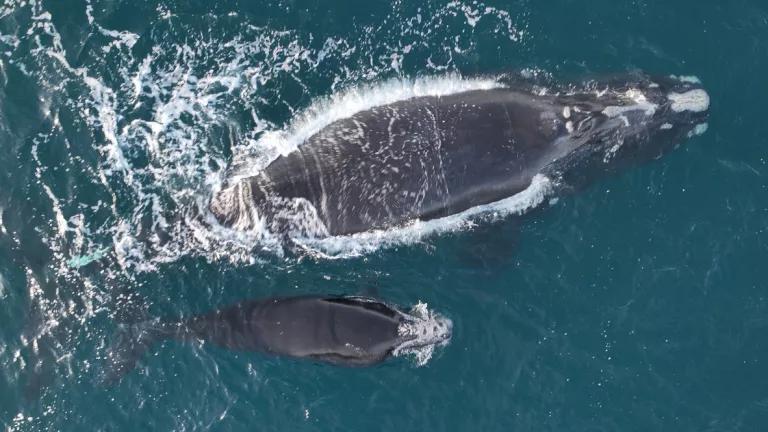The computer you’re reading, right now, has to be upgraded periodically to keep pace with the evolution of software, which sometimes does seem to change like species do from natural selection. But while our technology and the World Wide Web are becoming increasingly complex, our real world environments and their food webs are sadly simplifying. To start, we’re losing many of the world’s top predators, a phenomenon scientists call “trophic downgrading.” You wouldn’t want to downgrade your computer, yet that’s what we’re doing to our planet.
Recently, NRDC oceans team attorney Leila Monroe highlighted the loss of marine predators in her post, “Jellyfish Stings & the Trophic Blues.” She mentions a study there, “Trophic Downgrading of Planet Earth,” from a recent issue of Science that cites other noteworthy examples of this devastating effect in our oceans. It’s a topic that deserves more attention, because as the paper’s authors point out, humans are currently driving the world’s sixth mass extinction, and downgrading is playing a role. “The loss of apex consumers,” they write, “is arguably humankind’s most pervasive influence on the natural world.”
When downgrading occurs, the result is a “trophic cascade,” a waterfall or domino effect in the ecosystem. Since a change in the abundance of any single species may potentially impact the success of numerous others—the principle of “connectivity”—a trophic cascade isn’t simply vertical, or linear, but potentially in every direction. Downgrading acts “additively and synergistically” with the other problems we’ve generated, like habitat loss, pollution, and climate change, and as ecosystems shift, they often reach a tipping point after which they settle into another relatively stable, but less healthy state.
One of the more egregious forms of marine destruction is bottom trawling, which levels fragile seafloor landscapes, toppling corals and tearing up vegetation. Indirectly, the loss of “apex consumers” may produce similar results. Consider the case of sea otters: across the Pacific Rim, their population was severely depleted by fur traders, but where healthy numbers remain or have returned, otters keep grazers like sea urchins in check, allowing kelp forests to flourish. Without otters around, urchins mow down the kelp that provides a home for numerous animals. Simultaneously, phytoplankton and plants like kelp also sequester CO2, which is an example of how a trophic cascade due to downgrading can skew the chemistry of a local environment, or even the planet.
One of the ironies of trophic downgrading is that we often can’t identify it until it’s already happened. When apex consumers are lost, they’re difficult to bring back. With this in mind, the scientists that authored “Trophic Downgrading of Planet Earth” say that our outlook on large predators must revolutionize. “We argue that the burden of proof be shifted to show, for any ecosystem, that consumers do (or did) not exert strong cascading effects,” they conclude. In other words, we should assume that apex predators do have a strong top-down influence in our oceans and elsewhere, and work to protect them.




